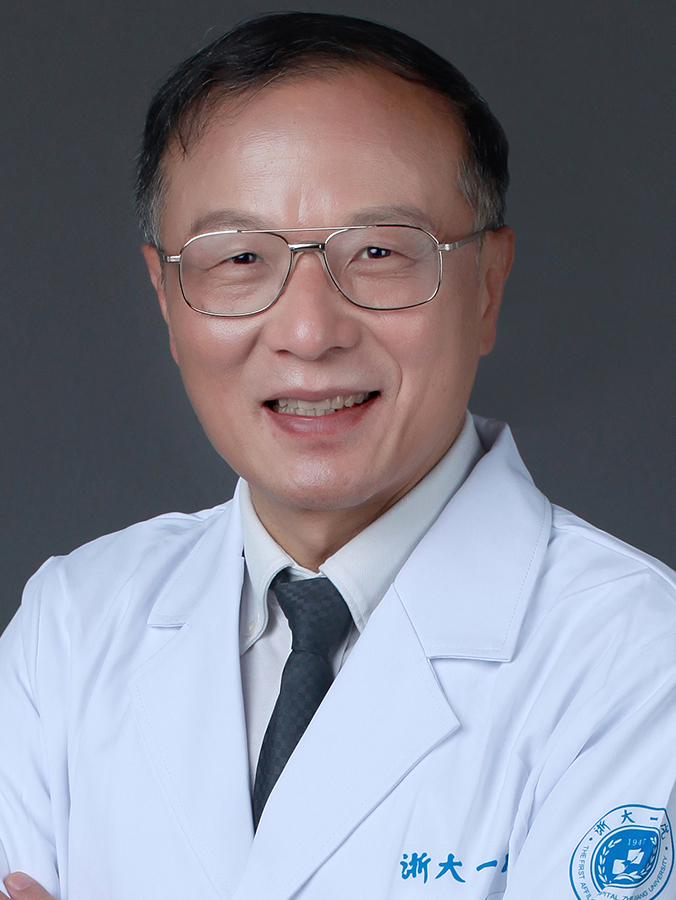
ZHANG JingMD, PhD
Biography
At the beginning of 2020, Prof. Zhang joined Zhejiang University as a chair professor, and is currently the Director of “The National Health and Disease Human Brain Tissue Resource Center”, the Vice President of Yuhang Region of the First Affiliated Hospital, Zhejiang University and the Director of the Department of Pathology. Before joining Zhejiang University, Zhang was an Endowed Professor and Director of Neuropathology (until 2016) affiliated with the University of Washington School of Medicine and an adjunct professor of Peking University School of Medicine and Tiantan Hospital affiliated with the Capital Medical University.
Profession: Neuropathology and Ophthalmic pathology
Professional Education: Prof. Zhang graduated from NMU in Shanghai in 1984, and received his Ph.D. in cell biology affiliated with Duke University School of Medicine in 1996. In 2001, he completed the residency training in anatomy and neuropathology at Vanderbilt University in the United States, passed the American medical license examination, and became a board-certified general pathologist and neuropathologist.
Interests
Prof. Zhang maintains an active research on the pathogenesis of neurodegenerative disorders, including Alzheimer's disease (AD) and Parkinson's disease (PD), and translational medicine, focusing on molecular markers of early diagnosis and tracking of neurodegenerative disorders. Zhang was awarded the international AD biomarker Research and Development Award by the Journal of Alzheimer's disease. He initiated several research areas, e.g. from mass spectrometry discovery and screening to independent platform verification with various state-of-the-art assays, and led one of the first teams to confirm the clinical value of cerebrospinal fluid α-synuclein (α-syn), phosphorylated α-syn, Aβ, tau in early diagnosis and differential diagnosis of PD. He also participated in the taskforce of international standardization of body fluid biomarkers and inter laboratory quality control studies organized by NIH and MJFF PD biomarker alliance. Dr. Zhang also pioneered the technology of capturing brain-derived exosomes in peripheral fluids, especially blood and saliva. The application of α-syn and tau in plasma exosomes has been granted an international patent. This technology breaks through the technical bottleneck of brain-derived molecular genomics research from peripheral fluids and creates a new perspective on noninvasive early diagnosis of brain diseases through peripheral body fluids.
Activities and Honors
Funds: In the United States: Dr. Zhang obtained a number of grants from National Institutes of Health (NIH) and pharmaceutical companies. In China: as the chief scientist, Dr. Zhang has been supported by the Key Project of the Ministry of Science and Technology (863 projects), the Beijing Municipal Science and Technology Commission (brain program) and the National Natural Science Foundation of China.
Publications: Since 1984, about 250 SCI articles have been published, including world top journals such as Lancet Neurology (IF: 28.75), Acta Neuropathologica (IF: 18.17), Science Translational Medicine (IF: 17.16), Alzheimer’s Disease & Dementia (IF: 14.42), Journal of Clinical Investigation (IF: 12.28), Brain (IF: 11.81), PNAS (IF: 9.50), Annals of Neurology (IF: 10.24), Neurology (IF: 8.68), Movement Disorders (IF: 8.06). JAMA Neurology (IF: 13.608), Progress in Neurobiology (IF: 14.16) , Science Advances (IF: 13.116). The total number of references exceeded 17000, with an h-index: 70 and I10 index: 195.
Professional Memberships
Editorial Boards: Brain Pathology, Journal of Alzheimer's disease, Neurology of Diseases, and Plos One. Also Reviewer of nearly 20 journals, including Cell, Nature, Science, PNAS and most neuroscience journals.



